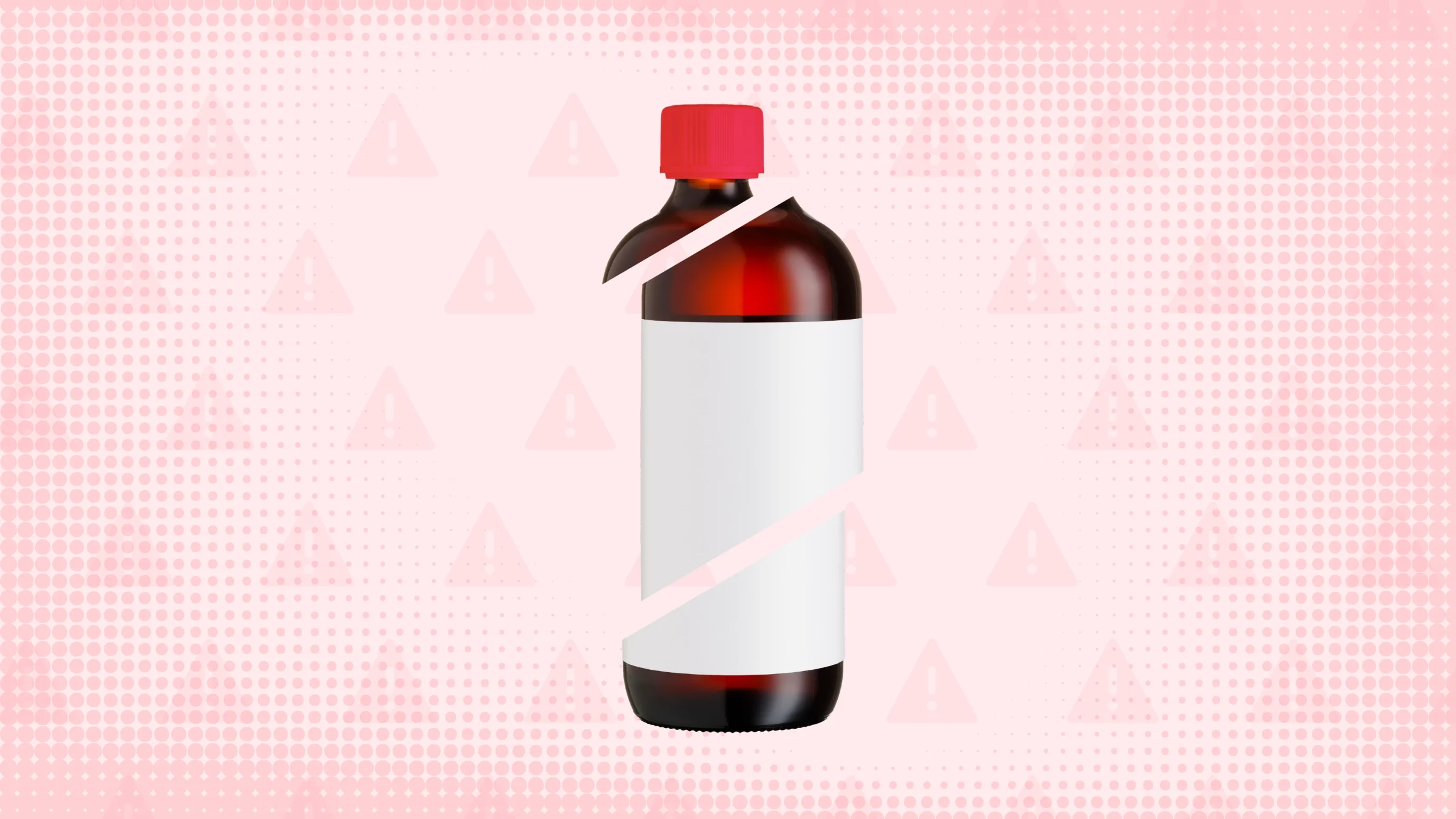Key takeaways:
Dantrolene (Dantrium) treats muscle spasticity caused by various conditions. It also treats malignant hyperthermia. Some common dantrolene side effects are tiredness, dizziness, and muscle weakness. Low energy and diarrhea can also occur.
Most dantrolene side effects go away on their own within a couple of weeks. But it’s best to avoid activities that require alertness (like driving) when you first start taking dantrolene. After you see how the medication affects you, you and your prescriber can determine whether it’s safe for you to resume these activities.
Although rare, liver damage from dantrolene is possible. If you have dark urine, yellowing skin or eyes, or abdominal pain, contact your prescriber immediately. And be sure to let your prescriber know if you have existing liver disease before you start taking dantrolene, as it may not be the best option for you.
Save on related medications
Dantrolene is a prescription-only muscle relaxer. It treats muscle spasticity (stiff or rigid muscles) related to several health conditions, including spinal cord injury, stroke, and cerebral palsy. Dantrolene is also the first-choice medication for preventing or managing malignant hyperthermia, a condition that causes muscles to contract uncontrollably.
Dantrolene comes as an oral medication (Dantrium) and an intravenous injection (Revonto, Ryanodex). In this article, we’ll focus on the risks associated with oral dantrolene. Learning about dantrolene side effects can help you understand which symptoms are considered mild and which ones warrant a call to your healthcare professional.
Dantrolene side effects at a glance
There’s a good chance that any dantrolene side effects you experience will be mild. Side effects related to the medication generally occur soon after starting treatment and go away on their own. Some of the most common side effects are:
Tiredness
Dizziness
General weakness
Muscle weakness
Lack of energy
Diarrhea
In rare cases, dantrolene can cause severe side effects as well. These may require immediate medical attention. Some examples are:
Liver damage
Seizures
Fluid around the lungs (pleural effusion)
Below, we go into more detail about six notable dantrolene side effects.
1. Tiredness
Tiredness is one of the most common dantrolene side effects. This is one reason why oral dantrolene is usually started at a lower dosage, which is then increased slowly over the course of several weeks. This gives your body time to get used to the medication.
Drowsiness from dantrolene tends to improve as your body gets used to the medication. But you should avoid activities that require alertness, like driving, when you first start taking it and your dosage is being adjusted. Once you know how dantrolene affects you, talk to your prescriber about whether it’s safe to resume driving and other activities.
If your tiredness doesn’t improve over time, talk to your prescriber. There are other muscle relaxers you may be able to take that cause less drowsiness.
2. Dizziness
Dantrolene can also cause dizziness. This is another reason to avoid driving and other activities that require alertness when you first start taking the medication and your dosage is being adjusted.
If you experience dizziness related to dantrolene, you can take some steps to avoid falls and injuries. First, make sure your home is free of tripping hazards. Clear your floors of clutter, secure any area rugs, and keep items you need often within reach. At times when you feel dizzy, find a safe place to sit or lie down until it passes. And when going from lying down or sitting to standing, move slowly and carefully.
Several medications, including benzodiazepines and opioids, and alcohol can worsen drowsiness and dizziness when combined with dantrolene. This combination can also slow breathing in extreme cases. So it’s usually best to avoid drinking alcohol while taking dantrolene. And ask your prescriber and pharmacist to check your current list of the medications for potential interactions before you start treatment.
Although dizziness from dantrolene usually improves over time, let your prescriber know if it’s affecting your daily life.
3. Weakness
You may experience muscle weakness and general weakness throughout your body while taking dantrolene. Muscle weakness is more likely to occur in people being treated for malignant hyperthermia, since this condition is usually treated with a higher dosage than muscle spasticity.
Like drowsiness and dizziness, muscle weakness can increase the risk of falls, especially in older adults. Additionally, dantrolene can cause muscle weakness in people with existing breathing issues. This can make it more difficult to breathe, which can be life-threatening. So if you have any health conditions that affect your breathing, let your prescriber know before starting treatment.
If weakness from dantrolene is interfering with your daily life, contact your prescriber. They may be able to prescribe you a lower dosage of dantrolene or recommend a different medication altogether.
4. Low energy
Low energy is another possible side effect of dantrolene. This side effect usually improves within the first few weeks of treatment. But in the meantime, getting enough sleep and eating foods that give you energy — like berries, leafy green vegetables, and beans and legumes — can help. Exercising, even in short bursts, can also boost your energy levels.
If you’re feeling persistently low on energy, let your prescriber know. Sometimes, fatigue that doesn’t go away can be a sign of another health issue.
5. Diarrhea
Diarrhea is another common dantrolene side effect. This side effect is usually mild, but in rare cases it may be severe enough to warrant stopping the medication. However, don’t make any changes without talking to your prescriber first.
If you’re experiencing mild diarrhea, avoiding or minimizing foods that can worsen diarrhea is a good place to start. This includes fatty or fried foods and several dairy products, like milk and soft cheese. Staying hydrated can also help.
For mild diarrhea, an antidiarrheal medication like loperamide (Imodium A-D) may also help in the short term. But this type of medication shouldn’t be taken for more than a few days. It’s also a good idea to check with your prescriber before you take it.
If your diarrhea doesn’t improve — or it’s accompanied by other symptoms, like fever, blood in the stool, or extreme weakness — it may represent something more serious. Reach out to your prescriber immediately if you experience any of these symptoms along with diarrhea.
6. Liver damage
In rare cases, dantrolene can cause liver damage. So before you start taking it, your prescriber will order blood tests called liver function tests. They’ll also check your liver function throughout your treatment with dantrolene.
Make sure to complete any labs that your prescriber orders for you. If your blood test results are abnormal at any point, your prescriber will probably recommend that you stop taking dantrolene.
The risk for liver damage from dantrolene is greater in women over 35 years old. It’s also greater for people who take higher dosages and, potentially, those who take estrogen medications. If you have existing liver disease, dantrolene isn’t recommended.
Symptoms of liver damage include yellowing skin and eyes (jaundice), dark urine, and abdominal pain. If you experience any of these symptoms, contact your prescriber immediately. If your symptoms feel severe, seek emergency care by calling 911 or going to the nearest emergency room.
When should you contact your care team about dantrolene side effects?
If you’re taking dantrolene, you may experience common side effects like tiredness, dizziness, and weakness. If these side effects, along with low energy or diarrhea, become bothersome enough to interfere with your daily activities, contact your prescriber. They may recommend lowering your dosage or switching you to another medication.
If you experience more serious side effects like dark urine, yellowing of the skin or eyes, or abdominal pain, let your prescriber know immediately as these may be signs of liver damage. And if you experience severe side effects, like trouble breathing, go to the emergency room or call 911.
The bottom line
Dantrolene (Dantrium) treats muscle spasticity caused by various conditions and malignant hyperthermia. Some common dantrolene side effects are tiredness, dizziness, and weakness. Diarrhea and low energy levels are also common. However, most dantrolene side effects go away on their own within a couple weeks.
Though rare, one of the more severe side effects of dantrolene is liver damage. If you have dark urine, yellowing skin or eyes, or abdominal pain, contact your healthcare professional immediately. Additionally, if you experience trouble breathing with dantrolene, seek emergency care. This side effect is more likely to occur if you take dantrolene with other substances that can slow your breathing, like opioids, benzodiazepines, or alcohol.

Why trust our experts?


References
Amneal Pharmaceuticals of New York LLC. (2023). Dantrolene sodium - dantrolene sodium capsule [package insert].
Moreland, J. D., et al. (2004). Muscle weakness and falls in older adults: A systematic review and meta-analysis. Journal of the American Geriatrics Society.
ScienceDirect. (n.d.). Dantrolene.
Sienaert, P. (2014). Managing the adverse effects of antidepressants. Psychiatric Times.







